לרפואת מינדל נחמיה בת מלכה
In a Dark Exile, Whispering Trees
A Father Plants Saplings 210 Years Early, Offering Solace to His Children
- February 27, 2025
- |
- 29 Sh'vat 5785
Rabbi YY Jacobson
4533 views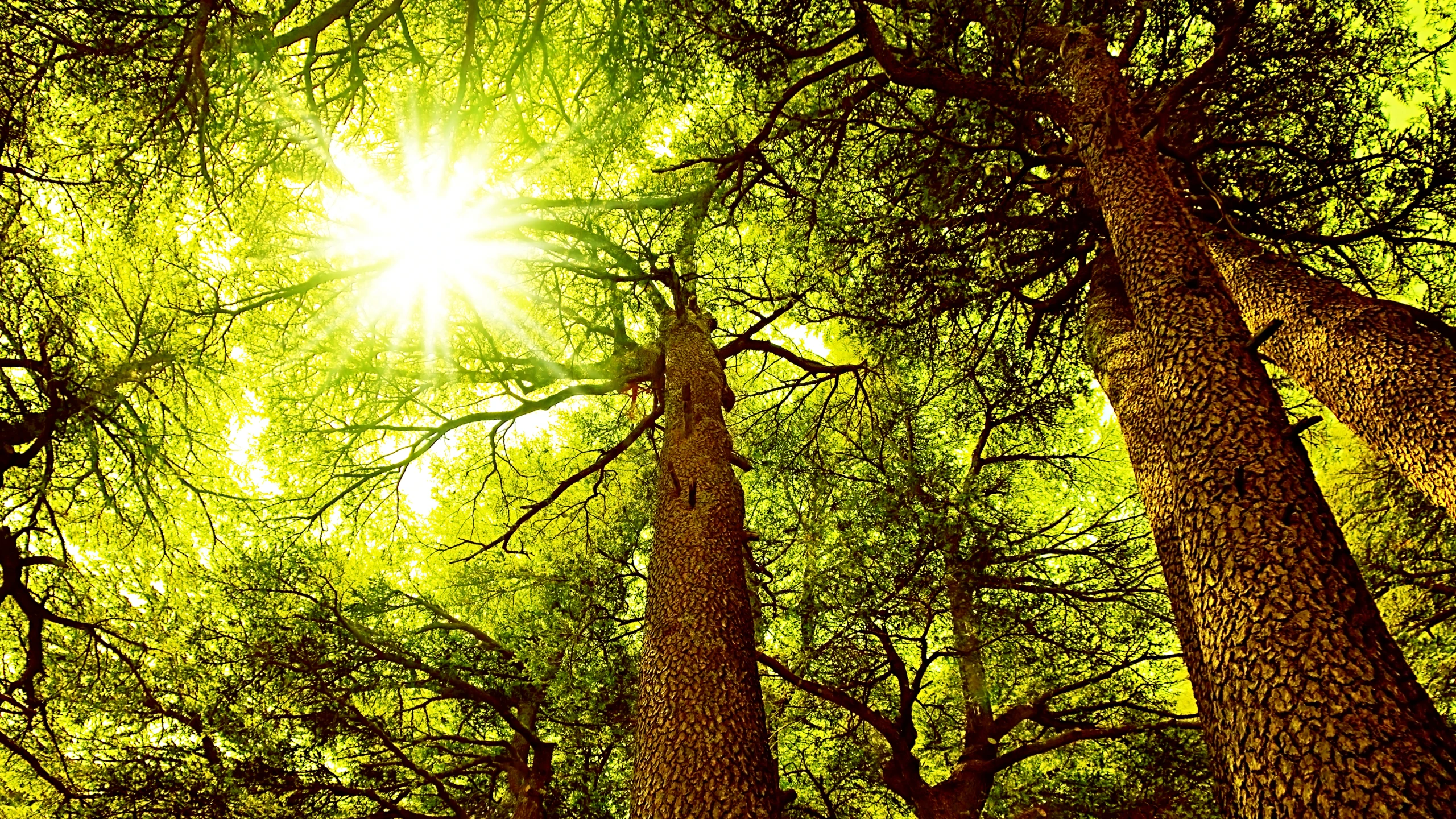
Sunny Cedar Forest
In a Dark Exile, Whispering Trees
A Father Plants Saplings 210 Years Early, Offering Solace to His Children
Rabbi YY Jacobson
- February 27, 2025
The Smuggler
Tony comes up to the Mexican border on his bicycle. He's got two large bags over his shoulders. Joe, the border guard, stops him and says, "What's in the bags?"
"Sand," answers Tony.
Joe says, "We'll just see about that. Get off the bike." Joe takes the bags and rips them apart; he empties them out and finds nothing in them but sand. He detains Tony overnight and has the sand analyzed, only to discover that there is nothing but pure sand in the bags.
Joe releases Tony, puts the sand into new bags, hefts them onto the man's shoulders, and lets him cross the border.
The next day, the same thing happens. Joe asks, "What have you got?"
“Sand," says Tony.
Joe does his thorough examination and discovers that the bags contain nothing but sand. He gives the sand back to Tony, and Tony crosses the border on his bicycle.
This sequence of events is repeated every day for three years. Then Joe runs across Tony one day in a cantina in Mexico.
"Hey, buddy," says Joe, "I retired. I know you are smuggling something. It's driving me crazy. It's all I think about ... I can't sleep. Just between you and me, what are you smuggling?"
Tony sips his beer and says, "bicycles.”
Cedar Trees
One of the most employed materials in the building of the Tabernacle—discussed in this week’s portion, Terumah—was cedarwood (“atzei shitim.”) Much of the structure and many of the vessels of the Tabernacle were fashioned from cedar.
Says Rashi, quoting the Midrash:
How did the children of Israel obtain [cedar wood for the construction of the Sanctuary] in the desert? Rabbi Tanchuma explained: Our father Jacob foresaw with his holy spirit that Israel was destined to build a Sanctuary in the desert; so he brought cedars to Egypt and planted them [there], and instructed his children to take them along when they left Egypt.[1]
This seems strange. Why carry trees from the Holy Land to plant in Egypt for use in a building to be constructed centuries later? Surely, there is no dearth of wood in wealthy Egypt, and, in any case, it could always be obtained for a price wherever their descendants might find themselves. Even the Sinai desert was not far from populated areas from where the Jews could obtain cedarwood.[2]
From the day Jacob descended to Egypt till the Exodus, 210 years passed. In life, it is good to plan long-term. I know people who pack for a trip one week before the flight. It is not my style, but I can respect them. Yet to pack up 210 years before a journey, seems like going overboard. Did Jacob feel that he needs to prepare the cedar wood 210 years before it was needed? Could he not have told his children to obtain cedars in or around Egypt?
Imagine, a fellow by the name of Jacob Isakson (son of Isaac) is relocating from Russia to the US in 1810. He brings with him cedar saplings to plant in America. He tells his children that one day in 2020 they might leave America to go build a sanctuary in the desert and they will need cedarwood. It would be strange; we could buy the wood in America!
It is not like Jacob came to Egypt empty-handed, so he had nothing to take along, but some cedar trees. Jacob, at the age of 130, was relocating his entire life, family, livestock, and his enormous wealth, to Egypt. The last thing he needed to add to the wagons were cedar trees!
Finding Comfort
The answer to this question I heard from the Lubavitcher Rebbe at an address on Shabbos Parshat Terumah, 6 Adar, 5747, March 7, 1987.[3] I can still vividly recall the profound emotion with which the Rebbe shared this insight—and it moves me deeply to this day.
The answer, the Lubavitcher Rebbe suggested, is intimated in the name of the Sage who transmitted this tradition: Rabbi Tanchuma. As a rule, Rashi rarely quotes the authors of the teachings in Talmud and Midrash he quotes in his commentary. Here is one of the exceptions. Because it is the name of the rabbi who shared this teaching, Tanchumam which explains why Jacob would engage in this seemingly unnecessary toil, two centuries before his descendants would need the cedar.
The name “Tanchuma” means to comfort and console. Jacob our father knew that one day the very country which has been so hospitable to him and his family, the country saved by his son Joseph, would turn its back on the Hebrew tribe and transform their lives into purgatory. Egypt would impose one of the most torturous conditions upon the young Hebrews. Jacob knew that the people of Israel would need something to hold on to, something tangible to remind them that they don’t belong here; something concrete to imprint upon their tormented hearts that they come from somewhere else, and they will one day leave this hellish concentration camp and return home.
A promise? Yes. He and Joseph promised the family that they would leave Egypt one day. But a verbal promise is insufficient. People can’t live on words alone. Jacob needed to give them something tangible that could comfort them and offer a measure of relief as they walked in a valley of tears and watched their infants plunged into a river.
Whispering Trees
Hence, the cedar trees. Jacob transported from the Land of Canaan young, tender saplings of cedar and lovingly planted them in the soil of Egypt, instructing his children, that one day, when they depart from this country, they must take these trees with them.
Jacob dies. Joseph dies. All the siblings die. Then all the grandchildren die. The first generations of Jews who still knew Jacob and his children passed on. A new Pharaoh began to enslave the young nation. Brutal labor and the extermination of Jewish babies began to become the Jewish plight.
And throughout this entire horrific ordeal, the crushed Hebrew slaves watched these cedars grow. And with it, their hope grew. They harbored the knowledge that long before their enslavement by the Egyptians, these trees had grown in the soil of Holy Land—the land promised to them as their eternal heritage. Each generation of Jews pointed out these cedar trees to their children, transmitted to them Jacob’s instructions to take these trees along when they would leave Egypt, to be fashioned into a Sanctuary for G-d.
And so, throughout their long and bitter exile, these cedars had whispered to the Jewish slaves: This is not your home. You hail from a loftier, holier place. Soon you will leave this depraved land behind, to be reclaimed by G-d as His people. Soon you will uproot us from this foreign land and carry us triumphantly to Sinai, where you will construct of us an abode for the Divine presence, which shall once again manifest itself in your midst.
These cedar trees stood as a permanent, tangible, silent but powerful, and tall symbol of courage, dignity, and hope in a bright future. They gave a nation of tormented, wretched slaves something to “hold on to” in a very concrete way, as they struggled under the yoke of their Egyptian oppressors. These trees offered the Jews some measure of “Tanchumah,” of solace and fortitude, during their darkest moments.
When the Jewish people held on to Jacob’s “prehistoric” cedar trees, for a brief moment, they felt free. And that’s what you need in order to endure. It reminded them that in their essence they were not slaves, they did not deserve to be beaten and oppressed; they were inherently free and one day they would see that freedom.
Staves of Faith
“The Tzaddik shall bloom as a palm,” sings the Psalmist, “as a Cedar of Lebanon, he shall flourish.”[4] Jacob planted cedars in Egypt, and G-d plants exactly such cedars in our midst throughout our long and turbulent history.[5] These are the Tzaddikim, the Rebbes, the spiritual giants, defined in Psalms as “cedar trees,” providing us with a link to the past and hope for the future.
The Tzaddik is a soul that towers above the transience and turbulence of exile; a soul that is rooted in Israel’s sacred beginnings and pointed toward the ultimate Redemption—a soul whose two feet stand on earth, but whose head touches heaven. When our subjection to the temporal and the mundane threatens to overwhelm us, we need only look to the cedars implanted in our midst. In these timeless staves of faith, we find guidance and fortitude, comfort, and encouragement. We remember who we are and what we are capable of becoming.
Above Exile
This is the function of every Rebbe, every leader among our people—and in today’s age, who of us is not in a position to influence one or more of our brothers and sisters. The Rebbe is the Jew who by his sheer presence and love reminds us that are we “higher,” that we must never surrender to a life of quiet desperation; that we are Divine ambassadors of love, light, hope, and redemption.
When we connect to a Rebbe, a Tzaddik, we too become, at least for a moment, free. We are all exposed to challenges, obstacles, and pressures; we must face trauma, darkness, pain, addiction, depression, disappointment, filth, and degradation.
We can become apathetic, cynical, and indifferent. But when we gaze at the cedars in our midst, and at the cedar inside each of our souls, we remember that we are fragments of infinity, sent to this world to transform its landscape. We remember that we are on a journey from Sinai to Moshiach; that as beautiful as America is it is not our true home; it is but a temporary stop in our journey toward Moshiach. As comfortable as this great country is and as much as we cherish it, it is not the place we call home. A child who has been exiled from the bosom of his father, even if he is living in the Hilton, is living in exile.
That is the function of every spiritual “cedar tree” teacher in Judaism: [6] To remind all of us that even as we are in exile, our souls can soar on the wings of eternity.[7]
____________________
[1] Rashi to Exodus 25:6
[2] Indeed, this is the view of some of the commentators. See Divrei David (Taz), Ibn Ezra, Baalei HaTosfos and Chizkuni on the verse (Exodus 25:6).
[3] Part of the address was published in Likkutei Sichos vol. 31 Terumah pp. 142-148.
[4] Psalms 92:13
[5] The Hebrew word Nassi (“leader”) is an acronym of the phrase nitzotzo shel Yaakov Avinu, “a spark of Jacob our father.” The soul of every leader of Israel is an offshoot of the soul of Jacob, father of the people of Israel (Megaleh Amukot, section 84).
[6] See Sichas Shabbos Parshas Shemos 5752, 1992—explaining why the first idea Rabbi Elazar ben Azaryah said as a leader was that we are obligated to mention the Exodus of Egypt also during nighttime. This captures the role of the leader: To help people experience Exodus even when night prevails, and darkness overwhelms.
[7] My thanks to Rabbi Yanki Tauber for his rendition of this address. I used some parts from his essay: https://www.meaningfullife.com/prehistoric-cedars/- Comment
Class Summary:
Why did Jacob, as our sages tell us, carry trees from the Holy Land to plant in Egypt for use in a building to be constructed centuries later? Surely, there is no dearth of wood in wealthy Egypt, and, in any case, it could always be obtained, for a price, wherever their descendants might find themselves?
The answer to this question I heard from the Lubavitcher Rebbe at an address on Shabbos Parshat Terumah, 6 Adar, 5747, March 7. 1987.
The Smuggler
Tony comes up to the Mexican border on his bicycle. He's got two large bags over his shoulders. Joe, the border guard, stops him and says, "What's in the bags?"
"Sand," answers Tony.
Joe says, "We'll just see about that. Get off the bike." Joe takes the bags and rips them apart; he empties them out and finds nothing in them but sand. He detains Tony overnight and has the sand analyzed, only to discover that there is nothing but pure sand in the bags.
Joe releases Tony, puts the sand into new bags, hefts them onto the man's shoulders, and lets him cross the border.
The next day, the same thing happens. Joe asks, "What have you got?"
“Sand," says Tony.
Joe does his thorough examination and discovers that the bags contain nothing but sand. He gives the sand back to Tony, and Tony crosses the border on his bicycle.
This sequence of events is repeated every day for three years. Then Joe runs across Tony one day in a cantina in Mexico.
"Hey, buddy," says Joe, "I retired. I know you are smuggling something. It's driving me crazy. It's all I think about ... I can't sleep. Just between you and me, what are you smuggling?"
Tony sips his beer and says, "bicycles.”
Cedar Trees
One of the most employed materials in the building of the Tabernacle—discussed in this week’s portion, Terumah—was cedarwood (“atzei shitim.”) Much of the structure and many of the vessels of the Tabernacle were fashioned from cedar.
Says Rashi, quoting the Midrash:
How did the children of Israel obtain [cedar wood for the construction of the Sanctuary] in the desert? Rabbi Tanchuma explained: Our father Jacob foresaw with his holy spirit that Israel was destined to build a Sanctuary in the desert; so he brought cedars to Egypt and planted them [there], and instructed his children to take them along when they left Egypt.[1]
This seems strange. Why carry trees from the Holy Land to plant in Egypt for use in a building to be constructed centuries later? Surely, there is no dearth of wood in wealthy Egypt, and, in any case, it could always be obtained for a price wherever their descendants might find themselves. Even the Sinai desert was not far from populated areas from where the Jews could obtain cedarwood.[2]
From the day Jacob descended to Egypt till the Exodus, 210 years passed. In life, it is good to plan long-term. I know people who pack for a trip one week before the flight. It is not my style, but I can respect them. Yet to pack up 210 years before a journey, seems like going overboard. Did Jacob feel that he needs to prepare the cedar wood 210 years before it was needed? Could he not have told his children to obtain cedars in or around Egypt?
Imagine, a fellow by the name of Jacob Isakson (son of Isaac) is relocating from Russia to the US in 1810. He brings with him cedar saplings to plant in America. He tells his children that one day in 2020 they might leave America to go build a sanctuary in the desert and they will need cedarwood. It would be strange; we could buy the wood in America!
It is not like Jacob came to Egypt empty-handed, so he had nothing to take along, but some cedar trees. Jacob, at the age of 130, was relocating his entire life, family, livestock, and his enormous wealth, to Egypt. The last thing he needed to add to the wagons were cedar trees!
Finding Comfort
The answer to this question I heard from the Lubavitcher Rebbe at an address on Shabbos Parshat Terumah, 6 Adar, 5747, March 7, 1987.[3] I can still vividly recall the profound emotion with which the Rebbe shared this insight—and it moves me deeply to this day.
The answer, the Lubavitcher Rebbe suggested, is intimated in the name of the Sage who transmitted this tradition: Rabbi Tanchuma. As a rule, Rashi rarely quotes the authors of the teachings in Talmud and Midrash he quotes in his commentary. Here is one of the exceptions. Because it is the name of the rabbi who shared this teaching, Tanchumam which explains why Jacob would engage in this seemingly unnecessary toil, two centuries before his descendants would need the cedar.
The name “Tanchuma” means to comfort and console. Jacob our father knew that one day the very country which has been so hospitable to him and his family, the country saved by his son Joseph, would turn its back on the Hebrew tribe and transform their lives into purgatory. Egypt would impose one of the most torturous conditions upon the young Hebrews. Jacob knew that the people of Israel would need something to hold on to, something tangible to remind them that they don’t belong here; something concrete to imprint upon their tormented hearts that they come from somewhere else, and they will one day leave this hellish concentration camp and return home.
A promise? Yes. He and Joseph promised the family that they would leave Egypt one day. But a verbal promise is insufficient. People can’t live on words alone. Jacob needed to give them something tangible that could comfort them and offer a measure of relief as they walked in a valley of tears and watched their infants plunged into a river.
Whispering Trees
Hence, the cedar trees. Jacob transported from the Land of Canaan young, tender saplings of cedar and lovingly planted them in the soil of Egypt, instructing his children, that one day, when they depart from this country, they must take these trees with them.
Jacob dies. Joseph dies. All the siblings die. Then all the grandchildren die. The first generations of Jews who still knew Jacob and his children passed on. A new Pharaoh began to enslave the young nation. Brutal labor and the extermination of Jewish babies began to become the Jewish plight.
And throughout this entire horrific ordeal, the crushed Hebrew slaves watched these cedars grow. And with it, their hope grew. They harbored the knowledge that long before their enslavement by the Egyptians, these trees had grown in the soil of Holy Land—the land promised to them as their eternal heritage. Each generation of Jews pointed out these cedar trees to their children, transmitted to them Jacob’s instructions to take these trees along when they would leave Egypt, to be fashioned into a Sanctuary for G-d.
And so, throughout their long and bitter exile, these cedars had whispered to the Jewish slaves: This is not your home. You hail from a loftier, holier place. Soon you will leave this depraved land behind, to be reclaimed by G-d as His people. Soon you will uproot us from this foreign land and carry us triumphantly to Sinai, where you will construct of us an abode for the Divine presence, which shall once again manifest itself in your midst.
These cedar trees stood as a permanent, tangible, silent but powerful, and tall symbol of courage, dignity, and hope in a bright future. They gave a nation of tormented, wretched slaves something to “hold on to” in a very concrete way, as they struggled under the yoke of their Egyptian oppressors. These trees offered the Jews some measure of “Tanchumah,” of solace and fortitude, during their darkest moments.
When the Jewish people held on to Jacob’s “prehistoric” cedar trees, for a brief moment, they felt free. And that’s what you need in order to endure. It reminded them that in their essence they were not slaves, they did not deserve to be beaten and oppressed; they were inherently free and one day they would see that freedom.
Staves of Faith
“The Tzaddik shall bloom as a palm,” sings the Psalmist, “as a Cedar of Lebanon, he shall flourish.”[4] Jacob planted cedars in Egypt, and G-d plants exactly such cedars in our midst throughout our long and turbulent history.[5] These are the Tzaddikim, the Rebbes, the spiritual giants, defined in Psalms as “cedar trees,” providing us with a link to the past and hope for the future.
The Tzaddik is a soul that towers above the transience and turbulence of exile; a soul that is rooted in Israel’s sacred beginnings and pointed toward the ultimate Redemption—a soul whose two feet stand on earth, but whose head touches heaven. When our subjection to the temporal and the mundane threatens to overwhelm us, we need only look to the cedars implanted in our midst. In these timeless staves of faith, we find guidance and fortitude, comfort, and encouragement. We remember who we are and what we are capable of becoming.
Above Exile
This is the function of every Rebbe, every leader among our people—and in today’s age, who of us is not in a position to influence one or more of our brothers and sisters. The Rebbe is the Jew who by his sheer presence and love reminds us that are we “higher,” that we must never surrender to a life of quiet desperation; that we are Divine ambassadors of love, light, hope, and redemption.
When we connect to a Rebbe, a Tzaddik, we too become, at least for a moment, free. We are all exposed to challenges, obstacles, and pressures; we must face trauma, darkness, pain, addiction, depression, disappointment, filth, and degradation.
We can become apathetic, cynical, and indifferent. But when we gaze at the cedars in our midst, and at the cedar inside each of our souls, we remember that we are fragments of infinity, sent to this world to transform its landscape. We remember that we are on a journey from Sinai to Moshiach; that as beautiful as America is it is not our true home; it is but a temporary stop in our journey toward Moshiach. As comfortable as this great country is and as much as we cherish it, it is not the place we call home. A child who has been exiled from the bosom of his father, even if he is living in the Hilton, is living in exile.
That is the function of every spiritual “cedar tree” teacher in Judaism: [6] To remind all of us that even as we are in exile, our souls can soar on the wings of eternity.[7]
____________________
[1] Rashi to Exodus 25:6
[2] Indeed, this is the view of some of the commentators. See Divrei David (Taz), Ibn Ezra, Baalei HaTosfos and Chizkuni on the verse (Exodus 25:6).
[3] Part of the address was published in Likkutei Sichos vol. 31 Terumah pp. 142-148.
[4] Psalms 92:13
[5] The Hebrew word Nassi (“leader”) is an acronym of the phrase nitzotzo shel Yaakov Avinu, “a spark of Jacob our father.” The soul of every leader of Israel is an offshoot of the soul of Jacob, father of the people of Israel (Megaleh Amukot, section 84).
[6] See Sichas Shabbos Parshas Shemos 5752, 1992—explaining why the first idea Rabbi Elazar ben Azaryah said as a leader was that we are obligated to mention the Exodus of Egypt also during nighttime. This captures the role of the leader: To help people experience Exodus even when night prevails, and darkness overwhelms.
[7] My thanks to Rabbi Yanki Tauber for his rendition of this address. I used some parts from his essay: https://www.meaningfullife.com/prehistoric-cedars/
Tags
Categories
Essay Terumah
Rabbi YY Jacobson
- February 27, 2025
- |
- 29 Sh'vat 5785
- |
- 4533 views
In a Dark Exile, Whispering Trees
A Father Plants Saplings 210 Years Early, Offering Solace to His Children
Rabbi YY Jacobson
- February 27, 2025
The Smuggler
Tony comes up to the Mexican border on his bicycle. He's got two large bags over his shoulders. Joe, the border guard, stops him and says, "What's in the bags?"
"Sand," answers Tony.
Joe says, "We'll just see about that. Get off the bike." Joe takes the bags and rips them apart; he empties them out and finds nothing in them but sand. He detains Tony overnight and has the sand analyzed, only to discover that there is nothing but pure sand in the bags.
Joe releases Tony, puts the sand into new bags, hefts them onto the man's shoulders, and lets him cross the border.
The next day, the same thing happens. Joe asks, "What have you got?"
“Sand," says Tony.
Joe does his thorough examination and discovers that the bags contain nothing but sand. He gives the sand back to Tony, and Tony crosses the border on his bicycle.
This sequence of events is repeated every day for three years. Then Joe runs across Tony one day in a cantina in Mexico.
"Hey, buddy," says Joe, "I retired. I know you are smuggling something. It's driving me crazy. It's all I think about ... I can't sleep. Just between you and me, what are you smuggling?"
Tony sips his beer and says, "bicycles.”
Cedar Trees
One of the most employed materials in the building of the Tabernacle—discussed in this week’s portion, Terumah—was cedarwood (“atzei shitim.”) Much of the structure and many of the vessels of the Tabernacle were fashioned from cedar.
Says Rashi, quoting the Midrash:
How did the children of Israel obtain [cedar wood for the construction of the Sanctuary] in the desert? Rabbi Tanchuma explained: Our father Jacob foresaw with his holy spirit that Israel was destined to build a Sanctuary in the desert; so he brought cedars to Egypt and planted them [there], and instructed his children to take them along when they left Egypt.[1]
This seems strange. Why carry trees from the Holy Land to plant in Egypt for use in a building to be constructed centuries later? Surely, there is no dearth of wood in wealthy Egypt, and, in any case, it could always be obtained for a price wherever their descendants might find themselves. Even the Sinai desert was not far from populated areas from where the Jews could obtain cedarwood.[2]
From the day Jacob descended to Egypt till the Exodus, 210 years passed. In life, it is good to plan long-term. I know people who pack for a trip one week before the flight. It is not my style, but I can respect them. Yet to pack up 210 years before a journey, seems like going overboard. Did Jacob feel that he needs to prepare the cedar wood 210 years before it was needed? Could he not have told his children to obtain cedars in or around Egypt?
Imagine, a fellow by the name of Jacob Isakson (son of Isaac) is relocating from Russia to the US in 1810. He brings with him cedar saplings to plant in America. He tells his children that one day in 2020 they might leave America to go build a sanctuary in the desert and they will need cedarwood. It would be strange; we could buy the wood in America!
It is not like Jacob came to Egypt empty-handed, so he had nothing to take along, but some cedar trees. Jacob, at the age of 130, was relocating his entire life, family, livestock, and his enormous wealth, to Egypt. The last thing he needed to add to the wagons were cedar trees!
Finding Comfort
The answer to this question I heard from the Lubavitcher Rebbe at an address on Shabbos Parshat Terumah, 6 Adar, 5747, March 7, 1987.[3] I can still vividly recall the profound emotion with which the Rebbe shared this insight—and it moves me deeply to this day.
The answer, the Lubavitcher Rebbe suggested, is intimated in the name of the Sage who transmitted this tradition: Rabbi Tanchuma. As a rule, Rashi rarely quotes the authors of the teachings in Talmud and Midrash he quotes in his commentary. Here is one of the exceptions. Because it is the name of the rabbi who shared this teaching, Tanchumam which explains why Jacob would engage in this seemingly unnecessary toil, two centuries before his descendants would need the cedar.
The name “Tanchuma” means to comfort and console. Jacob our father knew that one day the very country which has been so hospitable to him and his family, the country saved by his son Joseph, would turn its back on the Hebrew tribe and transform their lives into purgatory. Egypt would impose one of the most torturous conditions upon the young Hebrews. Jacob knew that the people of Israel would need something to hold on to, something tangible to remind them that they don’t belong here; something concrete to imprint upon their tormented hearts that they come from somewhere else, and they will one day leave this hellish concentration camp and return home.
A promise? Yes. He and Joseph promised the family that they would leave Egypt one day. But a verbal promise is insufficient. People can’t live on words alone. Jacob needed to give them something tangible that could comfort them and offer a measure of relief as they walked in a valley of tears and watched their infants plunged into a river.
Whispering Trees
Hence, the cedar trees. Jacob transported from the Land of Canaan young, tender saplings of cedar and lovingly planted them in the soil of Egypt, instructing his children, that one day, when they depart from this country, they must take these trees with them.
Jacob dies. Joseph dies. All the siblings die. Then all the grandchildren die. The first generations of Jews who still knew Jacob and his children passed on. A new Pharaoh began to enslave the young nation. Brutal labor and the extermination of Jewish babies began to become the Jewish plight.
And throughout this entire horrific ordeal, the crushed Hebrew slaves watched these cedars grow. And with it, their hope grew. They harbored the knowledge that long before their enslavement by the Egyptians, these trees had grown in the soil of Holy Land—the land promised to them as their eternal heritage. Each generation of Jews pointed out these cedar trees to their children, transmitted to them Jacob’s instructions to take these trees along when they would leave Egypt, to be fashioned into a Sanctuary for G-d.
And so, throughout their long and bitter exile, these cedars had whispered to the Jewish slaves: This is not your home. You hail from a loftier, holier place. Soon you will leave this depraved land behind, to be reclaimed by G-d as His people. Soon you will uproot us from this foreign land and carry us triumphantly to Sinai, where you will construct of us an abode for the Divine presence, which shall once again manifest itself in your midst.
These cedar trees stood as a permanent, tangible, silent but powerful, and tall symbol of courage, dignity, and hope in a bright future. They gave a nation of tormented, wretched slaves something to “hold on to” in a very concrete way, as they struggled under the yoke of their Egyptian oppressors. These trees offered the Jews some measure of “Tanchumah,” of solace and fortitude, during their darkest moments.
When the Jewish people held on to Jacob’s “prehistoric” cedar trees, for a brief moment, they felt free. And that’s what you need in order to endure. It reminded them that in their essence they were not slaves, they did not deserve to be beaten and oppressed; they were inherently free and one day they would see that freedom.
Staves of Faith
“The Tzaddik shall bloom as a palm,” sings the Psalmist, “as a Cedar of Lebanon, he shall flourish.”[4] Jacob planted cedars in Egypt, and G-d plants exactly such cedars in our midst throughout our long and turbulent history.[5] These are the Tzaddikim, the Rebbes, the spiritual giants, defined in Psalms as “cedar trees,” providing us with a link to the past and hope for the future.
The Tzaddik is a soul that towers above the transience and turbulence of exile; a soul that is rooted in Israel’s sacred beginnings and pointed toward the ultimate Redemption—a soul whose two feet stand on earth, but whose head touches heaven. When our subjection to the temporal and the mundane threatens to overwhelm us, we need only look to the cedars implanted in our midst. In these timeless staves of faith, we find guidance and fortitude, comfort, and encouragement. We remember who we are and what we are capable of becoming.
Above Exile
This is the function of every Rebbe, every leader among our people—and in today’s age, who of us is not in a position to influence one or more of our brothers and sisters. The Rebbe is the Jew who by his sheer presence and love reminds us that are we “higher,” that we must never surrender to a life of quiet desperation; that we are Divine ambassadors of love, light, hope, and redemption.
When we connect to a Rebbe, a Tzaddik, we too become, at least for a moment, free. We are all exposed to challenges, obstacles, and pressures; we must face trauma, darkness, pain, addiction, depression, disappointment, filth, and degradation.
We can become apathetic, cynical, and indifferent. But when we gaze at the cedars in our midst, and at the cedar inside each of our souls, we remember that we are fragments of infinity, sent to this world to transform its landscape. We remember that we are on a journey from Sinai to Moshiach; that as beautiful as America is it is not our true home; it is but a temporary stop in our journey toward Moshiach. As comfortable as this great country is and as much as we cherish it, it is not the place we call home. A child who has been exiled from the bosom of his father, even if he is living in the Hilton, is living in exile.
That is the function of every spiritual “cedar tree” teacher in Judaism: [6] To remind all of us that even as we are in exile, our souls can soar on the wings of eternity.[7]
____________________
[1] Rashi to Exodus 25:6
[2] Indeed, this is the view of some of the commentators. See Divrei David (Taz), Ibn Ezra, Baalei HaTosfos and Chizkuni on the verse (Exodus 25:6).
[3] Part of the address was published in Likkutei Sichos vol. 31 Terumah pp. 142-148.
[4] Psalms 92:13
[5] The Hebrew word Nassi (“leader”) is an acronym of the phrase nitzotzo shel Yaakov Avinu, “a spark of Jacob our father.” The soul of every leader of Israel is an offshoot of the soul of Jacob, father of the people of Israel (Megaleh Amukot, section 84).
[6] See Sichas Shabbos Parshas Shemos 5752, 1992—explaining why the first idea Rabbi Elazar ben Azaryah said as a leader was that we are obligated to mention the Exodus of Egypt also during nighttime. This captures the role of the leader: To help people experience Exodus even when night prevails, and darkness overwhelms.
[7] My thanks to Rabbi Yanki Tauber for his rendition of this address. I used some parts from his essay: https://www.meaningfullife.com/prehistoric-cedars/- Comment
לרפואת מינדל נחמיה בת מלכה
Class Summary:
Why did Jacob, as our sages tell us, carry trees from the Holy Land to plant in Egypt for use in a building to be constructed centuries later? Surely, there is no dearth of wood in wealthy Egypt, and, in any case, it could always be obtained, for a price, wherever their descendants might find themselves?
The answer to this question I heard from the Lubavitcher Rebbe at an address on Shabbos Parshat Terumah, 6 Adar, 5747, March 7. 1987.
Related Classes
Please help us continue our work
Sign up to receive latest content by Rabbi YY
Join our WhatsApp Community
Join our WhatsApp Community


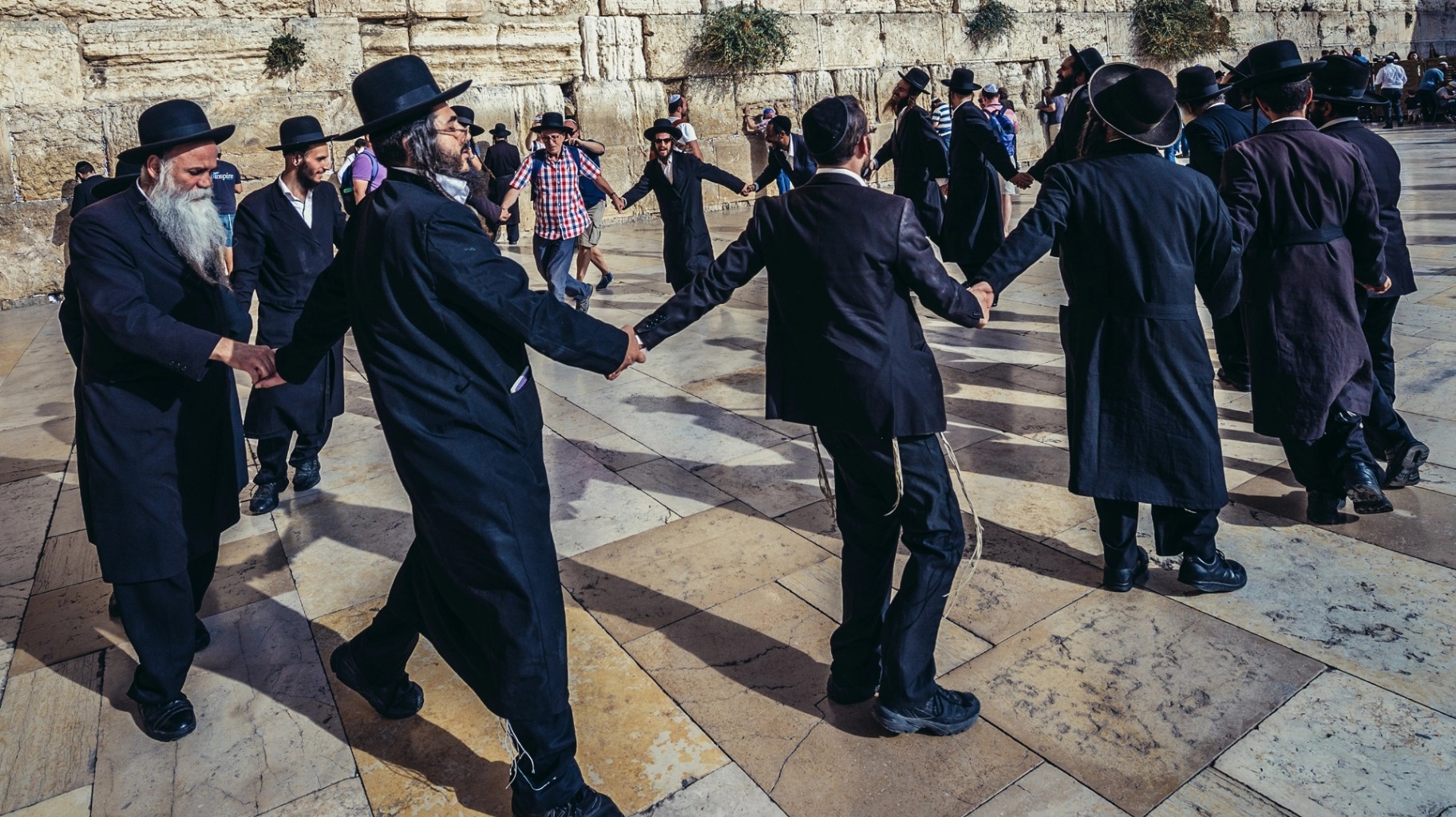
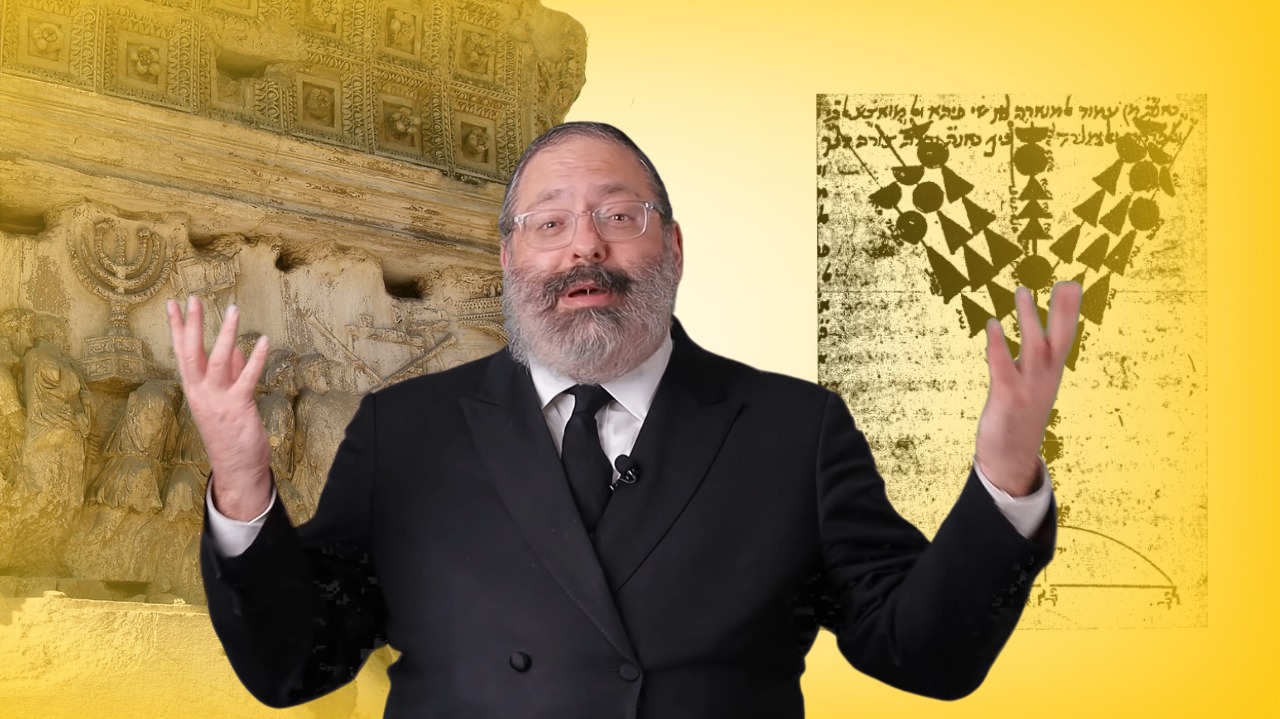

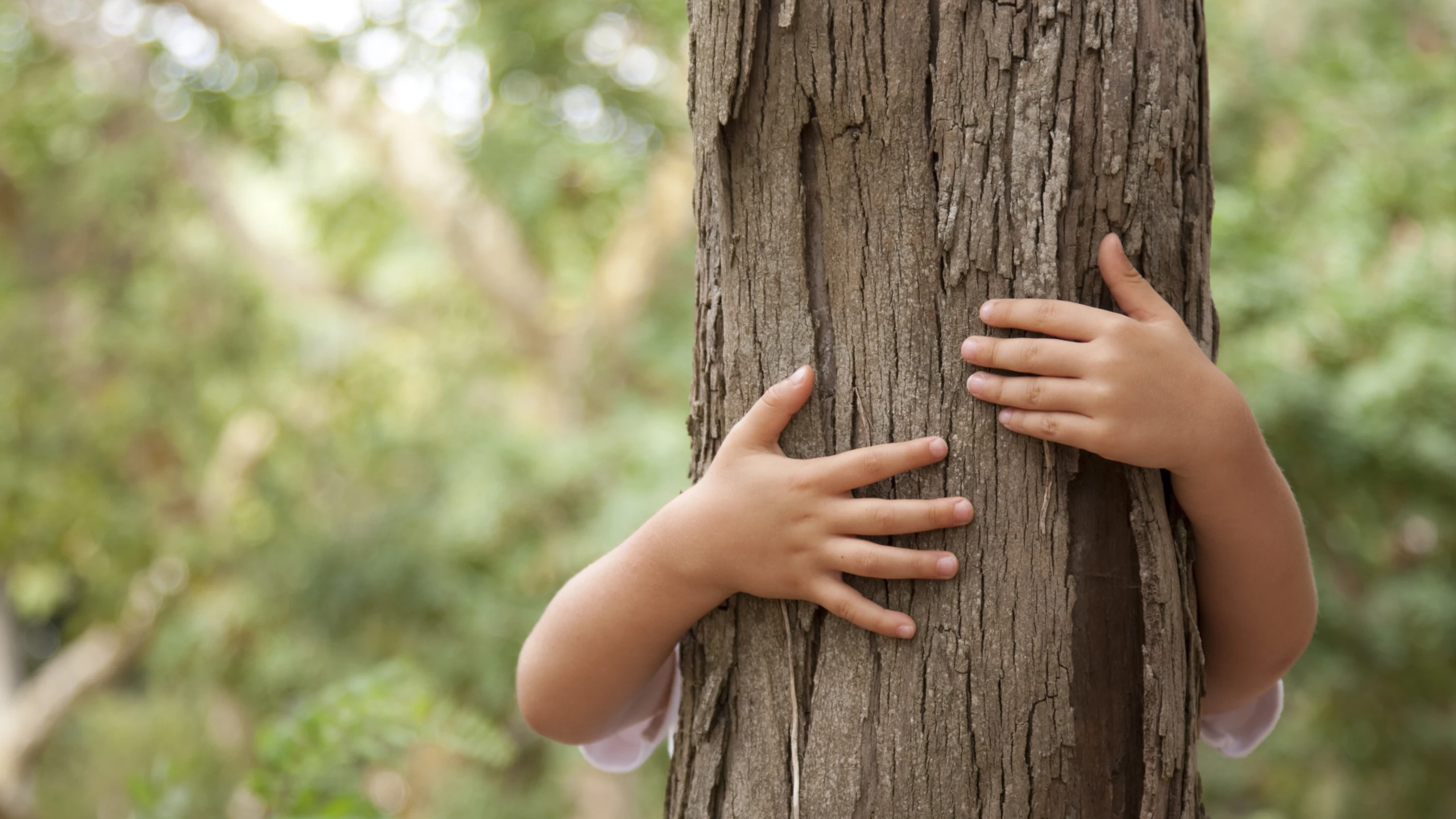


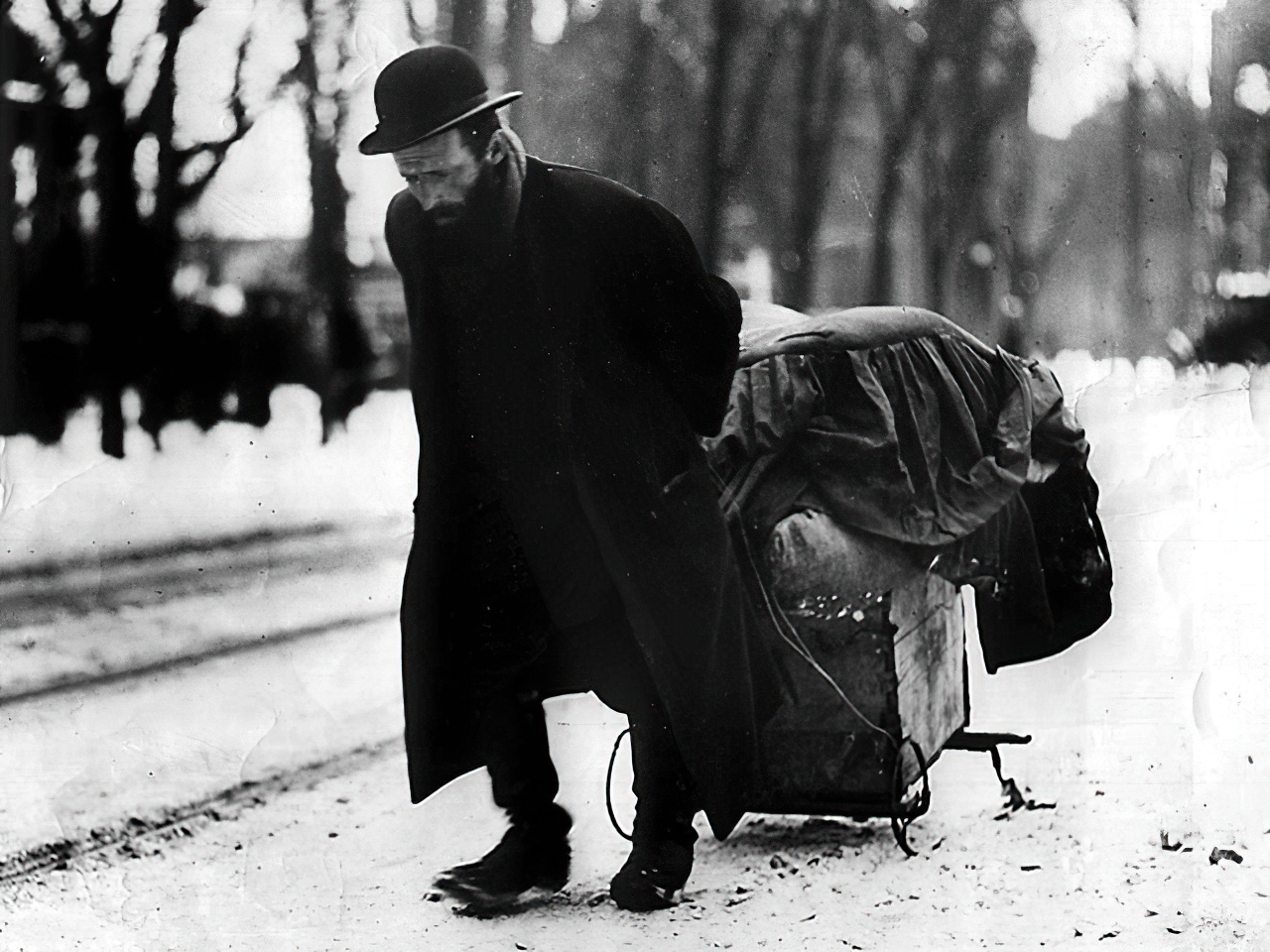
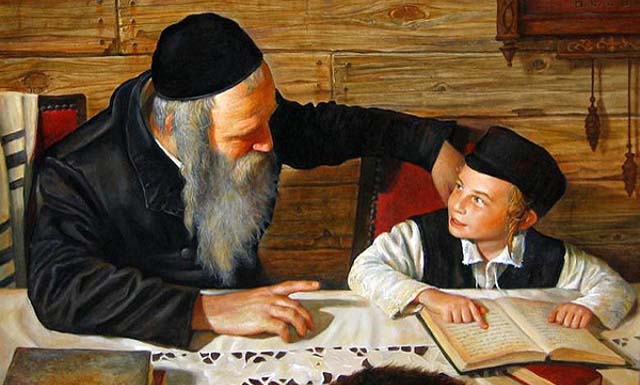

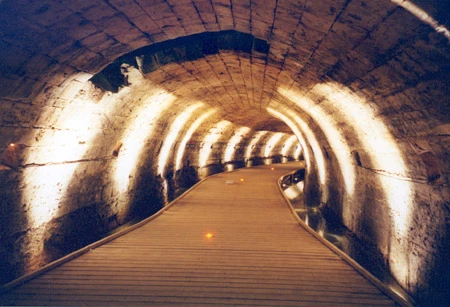
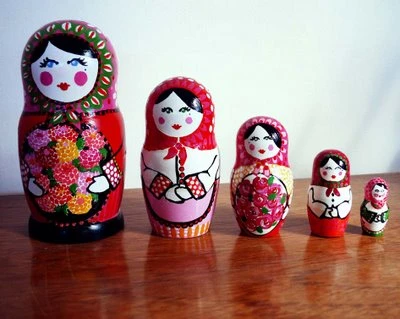
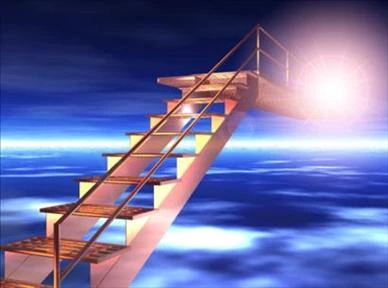
Please leave your comment below!
Anonymous -1 year ago
What's the connection with the bikes????
Reply to this comment.Flag this comment.
Isaac -1 year ago
Very powerful, a nation of hope!
Reply to this comment.Flag this comment.
Tsivia -5 years ago
What's strange about the Midrash that Rashi quotes is that the Yidden left Mitzrayim so suddenly , there wasn't even time for their dough to rise. How did they co-ordinate tree chopping and transporting?
Reply to this comment.Flag this comment.
Anonymous -5 years ago
As I responded to an other comment: I assume we would have to speculate that among the 600,000 males between 20 and 60 they took these trees along as well. They may have cut the trees some time earlier as Moshe was preparing the Jews to the Exodus. This tradition from Yaakov was known and we can assume they prepared for this moment dayd or weeks before.
When you read in Gemara Bechoros 5b that every Jew went otu with 90 donkeys, this would not be surprising that they can carry all these trees.
Reply to this comment.Flag this comment.
Anonymous -5 years ago
When/ how did they cut down these trees? No mention in the Torah of any such activity. Just wondering, being that יציאת מרים was with great and intentional חפזון.
Reply to this comment.Flag this comment.
Anonymous -5 years ago
Interesting question. I assume we would have to speculate that among the 600,000 males between 20 and 60 they took these trees along as well. They may have cut the trees some time earlier as Moshe was preparing the Jews to the Exodus.
When you read in Gemara Bechoros 5b that every Jew went otu with 90 donkeys, this would not be surprising.
בכורות ה, ב: שאין לך כל אחד ואחד מישראל שלא היו עמו תשעים חמורים לובים טעונים מכספה וזהבה של מצרים.
Reply to this comment.Flag this comment.
Anonymous -5 years ago
My question was more on the logistics of cutting down these trees- how, when, etc. Loading cut logs into donkeys is the simple part.
Reply to this comment.Flag this comment.
Anonymous -5 years ago
Yes, I never saw anythign writteb about that. But it must have an operation.
Reply to this comment.Flag this comment.
Anonymous -5 years ago
תיקו!
Reply to this comment.Flag this comment.
Anonymous -5 years ago
ועשית את הקרשים למשכן וגו'. הקרשים בה"א הידיעה היינו אותן ארזים שנטע להם יעקב במצרים, סימן לדבר הקרשים למשכן עולה למספר יעקב אבינו נטע להם ארזים במצרים כי מספר שניהם תתרצ"ה, כי אמר יעקב להקב"ה במה תתרצה על מעשה העגל והשיב לו הקב"ה בעצי שטים, וכן איתא במדרש עצי שטים לכפר על שטות מעשה העגל ונרצה להם לכפרה לפני ה', וכן מסיק בתנחומא (תרומה י) ובמס' (יומא עב.) דרשו מ"ש עצי שטים עומדים שעומדים לעולם, אך כפי הפשט שיעקב הכין אותם לעבודת בית אלהינו נוכל לומר שלכך אמר עומדים לומר שיקחו מאותן עצי שטים העומדים מוכנים לכך כי זהו משמעות לשון עומדים בהרבה מקומות בדבר המוכן ועומד לכך, ובא הרמז בארזים אלו למה שנאמר (תהלים צב יג) צדיק כתמר יפרח כארז בלבנון ישגא. ומאחר שגוף הצדיק נמשל לארז זה ע"כ השכין הש"י שכינתו תוך מחיצת עצי ארזים ללמוד בק"ו שהוא שוכן גם בתוך בני ישראל שנמשלו כארזים על מים וכמ"ש ושכנתי בתוכם בתוכו לא נאמר אלא בתוכם לומר שעיקר השכינה בעבור ישראל. ובעל הטורים פי' מ"ח קרשים כנגד מ"ח נביאים ומ"ח משמרות כהונה ולויה ומה ענינם אל הקרשים אם לא לפי שהצדיק נמשל לארז כאמור.
The Medresh says the atzey shitim were mechaper for the egel. The chet haegel was becuase they wanted a replacement for Moshe. Like the Rebbe explained we could understand why it came to be mechaper because HkBH will always leave us with Arazim that will guide us and we have the azey arazim to remind us of this idea.
Reply to this comment.Flag this comment.